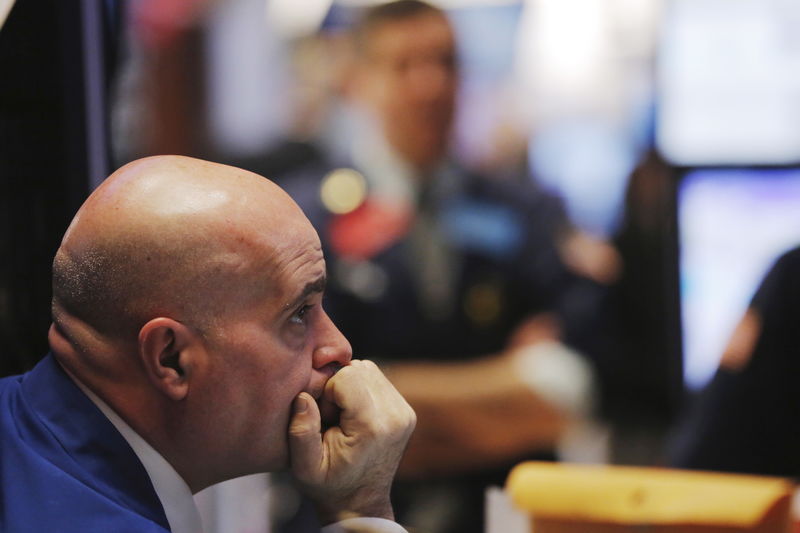
© Reuters.
By Sinead Cruise
LONDON (Reuters) – With text messages and emails under tightened surveillance, financial firms may now have to screen staff video calls for possible rule-breaking, amid concern regulators are poised to scrutinise such calls for compliance breaches.
So far, a sector-wide crackdown led by the U.S. Securities and Exchange Commission (SEC) has focused on business-related text messages over unauthorised platforms, such as WhatsApp, which went untracked and unrecorded by regulated firms, largely during COVID-19 lockdowns when thousands of employees were working from home.
The SEC declined to comment for this story but two people with knowledge of the U.S. investor probes said they were concerned the SEC would expand recording requirements to Zoom (NASDAQ:) calls, or similar forms of communication.
Finance firms are now engaging technology specialists, law firms and risk consultants to ensure video calls are monitored and retained as required, to meet record-keeping requirements and manage risks such calls could be used to share non-public information illegitimately, a dozen sources told Reuters.
The enforcement coincides with increased efforts by U.S. and UK regulators to upgrade protections for “mom & pop” investors putting more of their wealth in financial markets as a meme stock phenomenon continues.
“I don’t think we’ve a clue yet of how to incorporate video into a highly regulated work environment,” said Brad Levy, CEO of market infrastructure and tech firm Symphony, which counts JP Morgan and Goldman Sachs among its clients.
Video calls are broadly considered proxies for face-to-face meetings and therefore are currently subject to little or no formal record-keeping obligations.
But Matthew Nunan, a partner at law firm Gibson, Dunn & Crutcher, and former EMEA head of conduct risk at Morgan Stanley, said it was “very likely” regulators would begin to assess potential for compliance failures over video calls.
“If client calls are held over Microsoft (NASDAQ:) Teams, then [regulators] would expect these to be captured. The issue is the ability of firms to record, retain and produce relevant business records, however they are made,” he said.
Sarah Pritchard, executive director for markets at Britain’s Financial Conduct Authority, told delegates at its annual meeting this month its supervisory guidelines underlined a focus on market abuse and the mechanisms used to facilitate such activities.
WORKPLACE COMPLIANCE
Staff deliberately sharing sensitive information were considered most likely to arrange in-person meetings without using workplace devices, sources said.
But historical investigations have uncovered evidence of wrong-doing over work-related email and chatrooms, putting pressure on managers to evaluate possible breaches over video calls, now used routinely by thousands of finance workers.
“The way we work has evolved hugely over a very short period of time and firms need to make sure they are absolutely up to speed with the new exposures this brings,” Claire Garrett, head of the financial institutions practice at Marsh, said.
At least two major global banks are now recording Zoom calls, said sources with knowledge of the matter, who declined to be named because the information is not public.
One bank is recording Zoom calls undertaken by certain staff, including traders, while the other is recording all Zoom calls so content can be reviewed later if needed.
Reuters was unable to confirm when either bank began recording such calls or if this followed a regulatory request.
HSBC is blocking some staff from sending texts using their work phones, Bloomberg reported on Tuesday, citing unnamed sources. A spokesperson for HSBC declined to comment when asked by Reuters whether it was also recording and archiving video calls between staff and clients.
A spokesperson for Microsoft said it took compliance seriously and has highlighted recording options to users for capturing calls required by relevant industry regulation. Zoom did not respond to a request for comment.
The U.S. Financial Industry Regulatory Authority (FINRA) which oversees more than 624,000 U.S. broker dealers, obliges certain firms to comply with the so-called ‘FINRA Taping Rule 3170’.
Designed to prevent improper practices in the sale or marketing of financial products, all telephone conversations between registered persons and customers must be tape-recorded for at least three years, with quarterly activity reports filed to the regulator.
FINRA declined to comment on how many firms were subject to the rule or whether the rule also extended to video calls.
Michael Watling, co-head of law firm Seward & Kissel LLP’s government enforcement and internal investigations group, said the widespread nature of the SEC enforcement had surprised the industry.
“…FINRA has the taping rule, which provides very specific circumstances when a broker-dealer must record calls. So, a line has been drawn there but that line can only be redrawn if the regulators or Congress take additional action to expand the scope.”
Video calls pose “unique risks” and technology needed to efficiently screen video calls is not widely used, said Matt Smith, CEO of communications surveillance firm SteelEye.
Employees could share non-public information visually and audio recordings would not capture that exchange, he said.
Most video call platforms have chat functions including emoji-style reactions which could offer ways to communicate without triggering detection by surveillance applications which flag words or phrases that could indicate misconduct.
“…the scope of the regulatory reach almost always widens in response to technological evolution,” Ryan M. Yonk, economist at the American Institute for Economic Research, said.
The SEC has imposed more than $2 billion in fines for communication compliance missteps and is close to settling a similarly expansive probe into breaches among investment advisors, Reuters exclusively reported last month. It has collected thousands of staff messages from more than a dozen major investment companies.
“…my assumption is this generates a goldmine of data and then all sorts of other investigations can launch from there,” Symphony’s Levy added.








